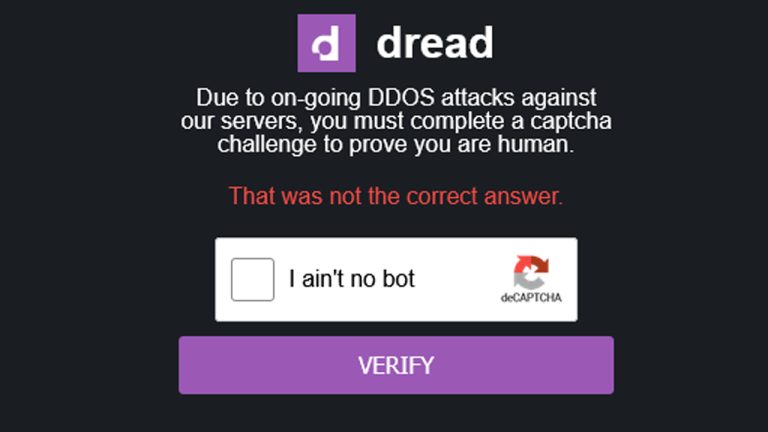 Stack Wallet, a cryptocurrency wallet supporting a wide range of digital assets, and its sibling Stack Duo, a focused wallet exclusively for monero and bitcoin, have announced a significant update. In the latest release of Stack Duo v1.2.0, Tor support has been added for both Monero and Bitcoin, including .onion addresses, enhancing privacy and security […]
Stack Wallet, a cryptocurrency wallet supporting a wide range of digital assets, and its sibling Stack Duo, a focused wallet exclusively for monero and bitcoin, have announced a significant update. In the latest release of Stack Duo v1.2.0, Tor support has been added for both Monero and Bitcoin, including .onion addresses, enhancing privacy and security […]

The FBI claimed it found Incognito Market’s alleged owner, Rui-Siang Lin, by tracking crypto from the dark web drug market to a crypto exchange account allegedly in his name.
A 23-year-old man has been arrested in New York and charged with owning, running and profiting from a $100 million dark web narcotics marketplace after authorities claimed to have tracked crypto transfers that uncovered his real identity.
Rui-Siang Lin, known online as “Pharoah,” was arrested at New York’s John F. Kennedy Airport on May 18 and appeared in federal court on Monday, May 20, the Manhattan United States Attorney’s Office wrote in a statement.
“For nearly four years, Rui-Siang Lin allegedly operated ‘Incognito Market,’ one of the largest online platforms for narcotics sales, conducting $100 million in illicit narcotics transactions and reaping millions of dollars in personal profits,” added FBI Assistant Director in Charge James Smith.
 In the past week, the Bitcoin network has made progress in resolving its congestion issues. On May 7, 2023, the number of unconfirmed transactions reached an all-time high of over 500,000 transfers, causing a major backlog. However, as of today, that number has been reduced to 263,406. Currently, 184 blocks need to be cleared to […]
In the past week, the Bitcoin network has made progress in resolving its congestion issues. On May 7, 2023, the number of unconfirmed transactions reached an all-time high of over 500,000 transfers, causing a major backlog. However, as of today, that number has been reduced to 263,406. Currently, 184 blocks need to be cleared to […] According to web portal darkdot.com and anonymous journalist Darkdotfail, the popular darknet forum Dread has been down for a month. The well-known forum, which was a place for darknet market (DNM) patrons to discuss operations security, rate specific vendors, and talk about stealth delivery ideas, has been absent for 30 days. However, the forum’s founder, […]
According to web portal darkdot.com and anonymous journalist Darkdotfail, the popular darknet forum Dread has been down for a month. The well-known forum, which was a place for darknet market (DNM) patrons to discuss operations security, rate specific vendors, and talk about stealth delivery ideas, has been absent for 30 days. However, the forum’s founder, […] Russian telecom and mass media watchdog Roskomnadzor has restored access to the website of the Tor Project, implementing a court ruling with delay. The site was blacklisted last year but the measure was successfully challenged by lawyers. Roskomnadzor Removes Tor Project’s Site From Blacklist of Banned Internet Pages Russia’s Federal Service for Supervision of Communications, […]
Russian telecom and mass media watchdog Roskomnadzor has restored access to the website of the Tor Project, implementing a court ruling with delay. The site was blacklisted last year but the measure was successfully challenged by lawyers. Roskomnadzor Removes Tor Project’s Site From Blacklist of Banned Internet Pages Russia’s Federal Service for Supervision of Communications, […] A court of appeals in Russia has overturned a ruling by a regional court which allowed the blocking of the Tor Project’s website in the country. Due to violations during the initial proceedings, the case has been returned to the court of the first instance for another review. Roskomsvoboda Helps Cancel the Blocking of Tor […]
A court of appeals in Russia has overturned a ruling by a regional court which allowed the blocking of the Tor Project’s website in the country. Due to violations during the initial proceedings, the case has been returned to the court of the first instance for another review. Roskomsvoboda Helps Cancel the Blocking of Tor […]
The NYM Innovation Fund will support research on mixnets and privacy-enhancing technologies.
Swiss privacy startup Nym Technologies announced it has secured $300 million in commitments from venture capital partners in support of the NYM Innovation Fund. Nym intends to issue grants to developers and incentivize them to build on top of Nym's decentralized infrastructure. This funding comes a couple of weeks after its native token NYM launched on major crypto exchanges, including OKX and Huobi.
At the time of publication, the NYM token traded at an average price of $0.92, and its 24-hour trading volume has witnessed a spike since the fund's announcement. The day that NYM was first listed on April 14, National Security Agency whistleblower Edward Snowden addressed attendees at the token launch event in Paris, where he attributed contemporary internet privacy problems to the decisions of antiquated 1970s computer networks.
Nym hosts mixnets, or systems of network protocols that obscure individuals' metadata footprints and protects applications, as well as their coins and wallets, against mass surveillance. Applications built on Nym work to improve upon third-party privacy services offered on virtual private networks (VPNs) and Tor.
The Nym Innovation Fund investors include Andreessen Horowitz, Polychain, Greenfield One, Huobi Incubator, Tioga Capital, Eden Block, NGC Ventures, HashKey Capital, Figment, Fenbushi Capital, Tayssir Capital, KR1, Lemniscap, and new backers OKX Blockdream Ventures.
The company tweeted that the venture capitalists "from our previous rounds are doubling down on their support" of Nym at a time when "everyone is terrified of VCs "dumping" on projects."
Among the first grant winners for Nym Innovation Fund are the Tails software, used by Snowden to leak NSA secrets, as well as university researchers Carmela Troncoso's privacy-enhanced COVID contract tracing system and Daniel J. Bernstein, tasked with speeding up Nym's cryptographic packet format called Sphinx that powers both the Lightning Network and Nym.
The first round of grants aims to "improve privacy on the Internet for the common good," according to the company. The Nym Foundation was also created with plans to issue an open call for additional applicants and proposals.
Related: Nym Technologies raises $13M to develop surveillance-evasion platform
The only way to protect privacy in the Metaverse is by taking a fully decentralized approach, argues @colinpape https://t.co/fzNP9LP4ym
— Cointelegraph (@Cointelegraph) February 20, 2022
Harry Halpin, chief executive officer of Nym Technologies, stated the Innovation Fund represents "a drop in the ocean compared to the endless amounts of cash possessed by vested interests at Silicon Valley companies and nation-states that benefit from mass surveillance." He also exclusively told Cointelegraph that the funds will go towards the best academics in the world:
"Cryptocurrency originally had a vision of defending the privacy of ordinary people, but U.S. government funding has historically ignored privacy in favor of NSA mass surveillance. Up until recently, VCs have funded privacy-invasive advertising business models by companies like Facebook," said Halpin.

The U.S. Department of Justice (DOJ) has seized tens of millions of dollars in crypto assets from an individual who allegedly sold illicit goods and laundered funds through the Dark Web. According to a new press release, the DOJ captured $34 million in digital assets from a Florida man in one of the largest cryptocurrency […]
The post Department of Justice Seizes $34,000,000 in Crypto From Florida Man Accused of Selling Stolen Data on Dark Web appeared first on The Daily Hodl.
 In mid-July 2017, the largest darknet marketplace (DNM) Alphabay went dark and patrons didn’t know if the administrators were busted by law enforcement or if it was an exit scam. Not too long after the site went dark, law enforcement disclosed that an organized police task force, from various jurisdictions, infiltrated Alphabay alongside the DNM […]
In mid-July 2017, the largest darknet marketplace (DNM) Alphabay went dark and patrons didn’t know if the administrators were busted by law enforcement or if it was an exit scam. Not too long after the site went dark, law enforcement disclosed that an organized police task force, from various jurisdictions, infiltrated Alphabay alongside the DNM […]
Bitcoin’s node count has achieved another all-time high milestone with almost half of the nodes running on Tor.
The number of reachable Bitcoin network nodes has crossed the 13,000 mark for the first time. As previously reported by Cointelegraph, the previous all-time high was 11,613 achieved back in January.
According to data from Bitcoin network statistics dashboard Bitnodes.io, this milestone was reached back on July 5 when the number of reachable nodes clocked 13,374. As of the time of writing, Bitnodes’ data puts the current network node count at about 12,835,
Coin.Dance, another tracking website also has Bitcoin’s (BTC) node count at a new all-time high of 12,825. Nodes running the Bitcoin Core software make up 98.77% of the number with the remaining scattered across less popular implementations like Bitcore and Bitcoin Knots.

Bitcoin Core 0.21.1 was released back in May with a Taproot activation code and at almost 5,000 nodes (according to Coin.Dance), it is currently the most utilized version of the software among entities running reachable nodes. Figures from Bitnodes put the number at 5,125, or 40% of the total network node count.
Bitnodes’ data also shows at almost half of the network node count is running on Tor. Back in January, only about a quarter of all reachable nodes were running on the hidden network Tor. Running a client like Bitcoin Core using Tor provides an additional privacy layer since the IP addresses of connecting nodes are obfuscated.
Related: Tor-enabled Bitcoin nodes are back after bug on network
According to Bitnodes’ data, the network node count has increased by 2,739 nodes in the last year reinforcing Bitcoin's decentralization ethos.
The growth in the network node count is also akin to the expansion currently taking place in the Lightning Network ecosystem where capacity has gone up over 70% in less than six months.
Earlier in July, public Lightning Network capacity crossed 1,800 BTC after adding 100 BTC in less than a week. Data from Lightning Network statistics tracker Bitcoin Visuals puts the number of LN nodes at above 12,800 which is also an all-time high value.